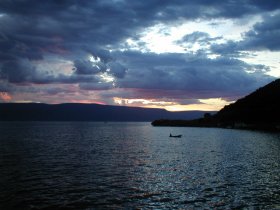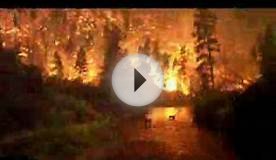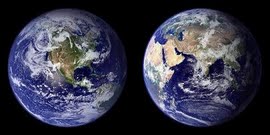Global warming Ecology
 Global assessments based on satellite data have found that the world’s largest lakes have steadily warmed in the last 25 years, and some lakes are warming more rapidly than air temperature. I wrote about this in an earlier post, noting that studies of individual lakes, using temperature data gathered in the traditional way, confirmed these findings.
Global assessments based on satellite data have found that the world’s largest lakes have steadily warmed in the last 25 years, and some lakes are warming more rapidly than air temperature. I wrote about this in an earlier post, noting that studies of individual lakes, using temperature data gathered in the traditional way, confirmed these findings.
Because these rapid changes in lake temperature have profound implications for lake ecology, researchers recognized the need for assembling lake temperature information from both in-lake (in situ) sampling programs and remotely sensed data sources, a new study says. Researchers working with the Global Lake Temperature Collaboration (GLTC) decided to tackle the challenging task of pulling together data from hundreds of lakes for the 1985-2009 time period.
Unprecedented collaboration among more than 70 investigators in 20 countries has resulted in a massive global database of lake temperature, including from in situ data collection efforts such as those coordinated through the Global Lake Ecological Observatory Network (GLEON).
The GLTC initiative has now assembled a database of summer-mean lake surface temperature for 291 lakes and reservoirs around the world, roughly doubling the amount of data previously available from satellites alone, according to lead author and York University assistant professor Sapna Sharma.
The database includes data from the largest lakes in world, such as the North American Great Lakes, Lake Baikal, and Lake Tanganyika. It also includes small and remote lakes, such as Toolik Lake in Alaska, a site where GLTC lead John Lenters of LimnoTech conducts research.
“On the one hand, remotely sensed measurements of lake surface temperature provide good geographic coverage of many of the world’s largest lakes, with most data going back to 1985. in situ data, on the other hand, fill some of the gaps left by the satellite record by providing temperature data for lakes that are too small to be “visible” by satellite. Many of the in situ records also go further back in time, and a few even provide information on vertical temperature profiles.”
Sharma is experienced in analyzing large datasets, so she stepped up to coordinate the database effort. It took two of her undergraduate students eight months each to review and compile the responses to the questionnaire they sent out looking for researchers to contribute data.
Even something as simple as water temperature takes a lot of effort to pull together, says Sharma. Her favorite part of the project was meeting and working with researchers from all over the world. “I was so impressed by the team effort. This was a side-project for everyone involved, but people really stepped up and helped see the project through to the end, ” she said.
What’s even more impressive than the time these researchers put into assembling the global dataset, is the effort that went into collecting the data in the first place.
Research institutions, government agencies, and even private groups devote a tremendous effort to studying and monitoring lakes. “This research would not be possible without the countless number of field technicians, scientists, students and trained volunteers who collect data about lakes, ” said Sharma.
Lisa Borre is a lake conservationist, writer and avid sailor. She is co-author of The Black Sea


